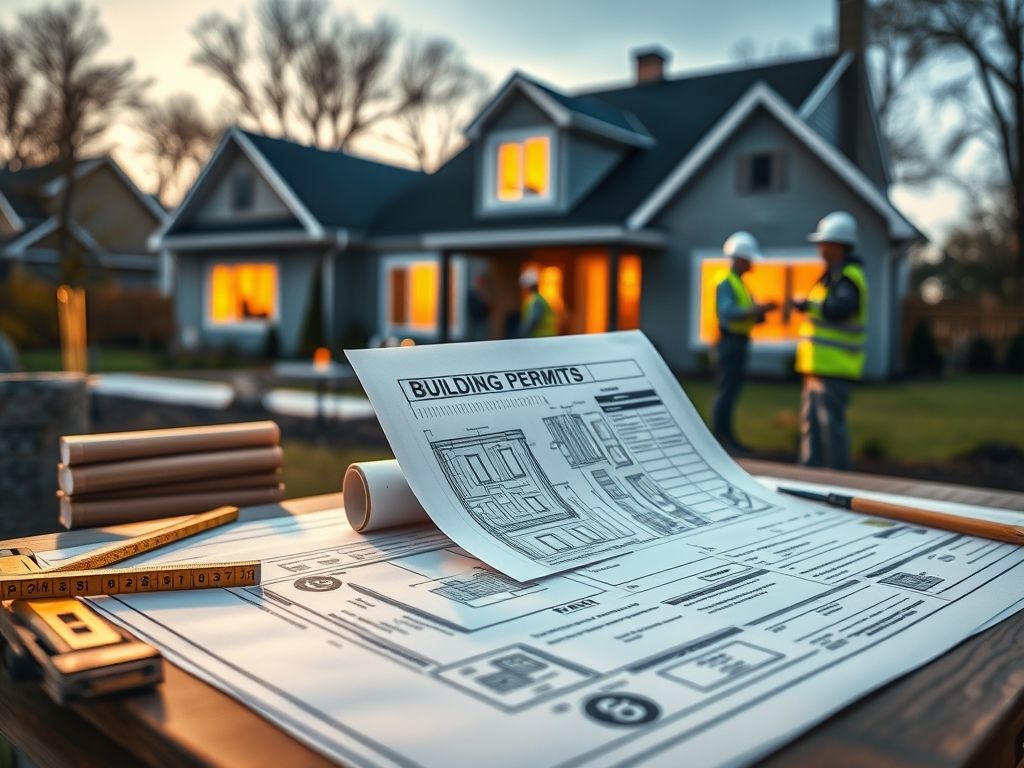What is Building Permits?
A building permit is an official approval issued by your local government that allows you to construct, remodel, or renovate a structure. This document ensures that the planned construction complies with local building codes, zoning laws, and safety regulations. For homeowners, real estate investors, and contractors in Massachusetts, understanding building permits is crucial to avoid legal issues and ensure the safety and quality of construction projects.
Importance of Building Permits in Massachusetts
In Massachusetts, building permits serve multiple vital purposes:
- Safety Compliance: Ensures that all construction meets safety standards, protecting residents and visitors.
- Zoning Laws: Confirms that the building project adheres to zoning regulations, which dictate land use and the types of structures allowed in specific areas.
- Property Value: A properly permitted project is more likely to add value to your property and make it easier to sell in the future.
- Legal Protection: Provides documentation that can protect homeowners and contractors from legal disputes regarding unauthorized construction.
How to Obtain a Building Permit in Massachusetts
Obtaining a building permit typically involves several key steps:
- Prepare Your Plans: Create detailed construction or renovation plans that comply with local codes.
- Submit Your Application: Fill out a building permit application and submit it to your local building department along with the necessary plans and fees.
- Review Process: The building department will review your application to ensure it meets all codes and regulations. This process may involve revisions and additional documentation.
- Receive Your Permit: Once approved, you will receive your building permit, allowing you to start construction legally.
It’s essential to check with your local municipality in Massachusetts for specific requirements and processes, as they can vary from one location to another.
Common Questions About Building Permits
What types of projects require building permits?
In Massachusetts, a variety of projects require a building permit, including:
- New home construction
- Major renovations, such as adding a room or changing the structure of a building
- Electrical, plumbing, and HVAC work
- Decks, fences, and sheds exceeding a certain height or size
What are the consequences of not obtaining a building permit?
Failing to obtain a building permit can lead to serious consequences:
- Fines and Penalties: Local authorities may impose fines for unauthorized construction.
- Legal Issues: You may face legal action from local government or neighbors.
- Increased Costs: Rectifying unpermitted work can be more expensive than following the proper process initially.
How long does it take to get a building permit?
The time it takes to obtain a building permit in Massachusetts can vary. Generally, the review process can take anywhere from a few days to several weeks, depending on the complexity of the project and the local building department’s workload.
Can I work without a building permit?
Working without a building permit is not advisable and often illegal. If you proceed without one, you risk facing fines, legal issues, and having to undo any unpermitted work.
Practical Applications: Navigating Building Permits
Understanding how to navigate the building permit process can empower you in various ways:
- Improved Project Planning: Knowing the permit requirements allows you to plan your renovations or construction projects more effectively.
- Enhanced Communication: If you are a contractor, understanding building permits can improve your communication with clients, setting clear expectations about timelines and costs.
- Better Compliance: Being informed helps ensure that all aspects of your project comply with local regulations, reducing the risk of future headaches.
Related Concepts
Building permits are interconnected with several other important concepts in construction and home renovation:
- Building Codes: Regulations that govern the construction and renovation of buildings to ensure safety and health standards.
- Zoning Laws: Local laws that define how properties in specific geographic zones can be used.
- Inspection Process: The process through which local government officials ensure that construction complies with building codes and safety standards.
- Occupancy Permits: Required before a newly constructed or renovated building can be occupied, verifying compliance with all building codes.
Conclusion
In conclusion, understanding building permits is essential for homeowners, contractors, and real estate investors in Massachusetts. By adhering to the permit process, you not only ensure the legal and safe completion of your construction projects but also protect your investment and enhance the value of your property. Always consult your local building department for specific guidelines and requirements in your area to streamline your project and ensure compliance.
Take the first step in your construction journey today: familiarize yourself with the building permit process in your community, and ensure that your next project starts on the right foot!







